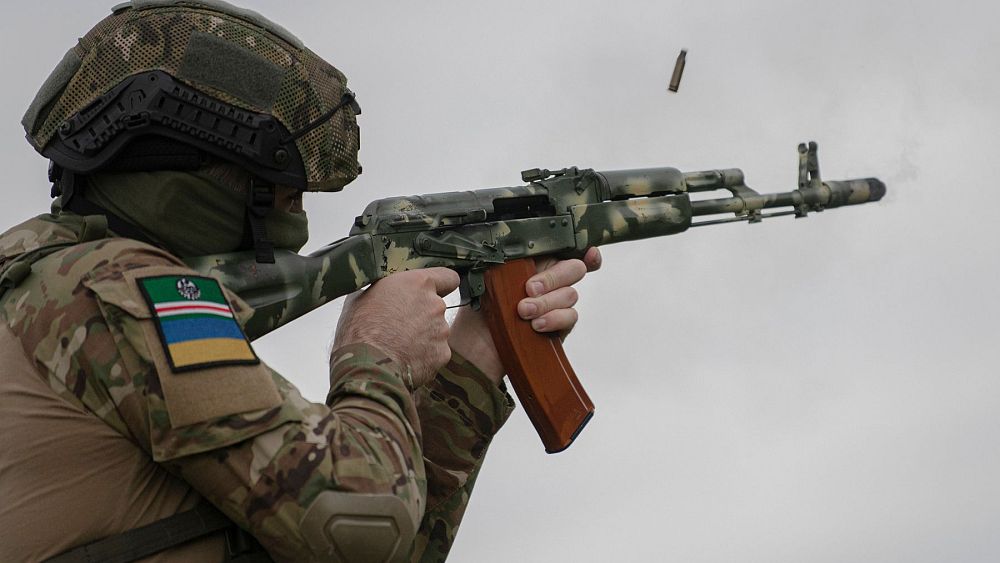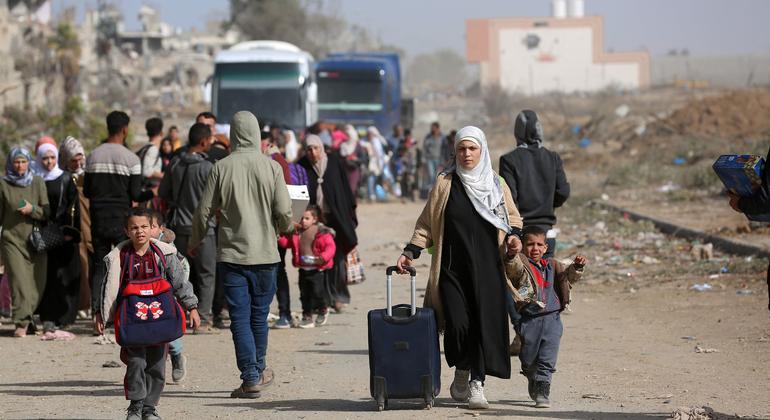Nuclear concerns as Russia fires on power station
Concern about the potential for a radiation leak at Europe’s largest nuclear power plant persisted as Ukrainian authorities said Saturday that Russian forces fired on areas just across the river and Russia claimed Ukrainian shelling hit a building where nuclear fuel is stored.
Authorities were distributing iodine tablets to residents who live near the Zaporizhzhia Nuclear Power Plant in case of radiation exposure, which can cause health problems depending on the amount a person absorbs.
Much of the concern centers on the cooling systems for the plant’s nuclear reactors. The systems require power to run, and the plant was temporarily knocked offline Thursday because of what officials said was fire damage to a transmission line. A cooling system failure could cause a nuclear meltdown.
Russian forces occupied the nuclear plant complex early in the 6-month-old war in Ukraine, and Ukrainian workers have kept it running. The Ukrainian and Russian governments have repeatedly accused the other of shelling the complex and nearby areas, raising fears of a possible catastrophe.
Periodic shelling has damaged the power station’s infrastructure, Ukraine’s nuclear power operator, Energoatom, said Saturday. “There are risks of hydrogen leakage and sputtering of radioactive substances, and the fire hazard is high,” it said.
In the latest conflicting attack reports, the governor of Ukraine’s Dnipropetrovsk region, Valentyn Reznichenko, said Saturday that Grad missiles and artillery shells hit the cities of Nikopol and Marhanets, each located about 10 kilometers (6 miles) and across the Dnieper River from the plant,
But Russian Defense Ministry spokesman Igor Konashenkov said Ukrainian forces had fired on the plant from Marhanets. Over the past day, 17 Ukrainian shells hit the plant, with four striking the roof of a building that stores nuclear fuel, he said.
It was not immediately possible to verify either account given restrictions on journalists’ movements and the ongoing fighting.
Read more at our story here.
Train station attacks ‘could be war crimes’
Russia’s attack on a Ukrainian train station that killed more than 20 people this week is the latest in a series of strikes on the country’s railway system that some international legal scholars say may be war crimes.
While Russia claimed that it had targeted the train because it was carrying Ukrainian troops and equipment on Wednesday, reporters on the ground said there was no visible indication that Ukrainian troops were among the dead, who included children. If civilians were the target, experts said Thursday, the attack could be considered a war crime.
“A train station is generally a civilian object and should not be a target of attack,” said Jennifer Trahan, a clinical professor at New York University’s Center for Global Affairs.
Wednesday’s attack in Chaplyne, a small village in southeastern Ukraine, was one of the deadliest in months on the country’s extensive railway system. In the more than six months since Russia invaded Ukraine, there have been more than 40 independently verified attacks on civilian infrastructure that could be considered war crimes.
Three of those hit the country’s railway infrastructure and seven have involved local bus stops, killing more than 100 civilians. In these attacks, there has been little evidence to back up Moscow’s claims that Ukrainian troops were the target.
The deadly strike Wednesday came as Ukrainians were defiantly celebrating their Independence Day while remaining on high alert because of threats that Russia would use the occasion to mount attacks.
Britain gives underwater mine-hunting drones to Ukraine
The United Kingdom announced on Saturday that it would donate six underwater drones to Ukraine to help it neutralise Russian mines off its coast, and train Ukrainian soldiers in their use.
These “lightweight, self-contained devices are designed for use in shallow coastal areas, capable of operating up to 100 meters below sea level to detect, locate and identify mines (…) so that the Navy Ukraine can neutralize them,” the Ministry of Defense (MoD) said in a statement.
From the same source, “dozens of members of the Ukrainian Navy will be trained to use these drones over the next few months, training has already started for the first of them”. The training will be provided by the United Kingdom and the United States.
This new military aid comes as, according to the MoD, “Russia is turning food into a weapon by destroying Ukrainian agriculture and imposing a blockade on the country’s ports on the Black Sea to prevent exports”.
While some vessels carrying grain were able to leave Ukraine under the terms of an agreement obtained by the UN, these operations “remain limited by underwater mines left by Russian forces along the coast” of the country, has said the UK.
In May, Prime Minister Boris Johnson announced a £300m (€355m) tranche of military and humanitarian aid to Ukraine , following a previous £450m plan, including the provision of missiles.
Oscar-winner praises Russian troops at Moscow Film Festival
The 44th Moscow International Film Festival is taking place this weekend, but with reduced foreign representation after Russia’s invasion of Ukraine.
Festival head Nikita Mikhalkov, the Academy Award-winning director of “Burnt By The Sun,” brushed that off, saying “It makes no difference how big are the stars that come. I’m interested in people who come, because they are interested in meeting us.”
Mikhalkov also praised Russia’s military operation in Ukraine.
“These days, the heroes are in Donbas,” he said, referring to eastern Ukraine’s industrial heartland, two regions that Russia recognised as sovereign this year after Russia-backed separatists began fighting the Ukrainian government there in 2014.
“That is where the new elite and the new heroes are being born. Actually, a new world and a new society are being born there. The problem is that unfortunately not everybody understands that this is serious and it’s here to stay,” he said.




















Discussion about this post